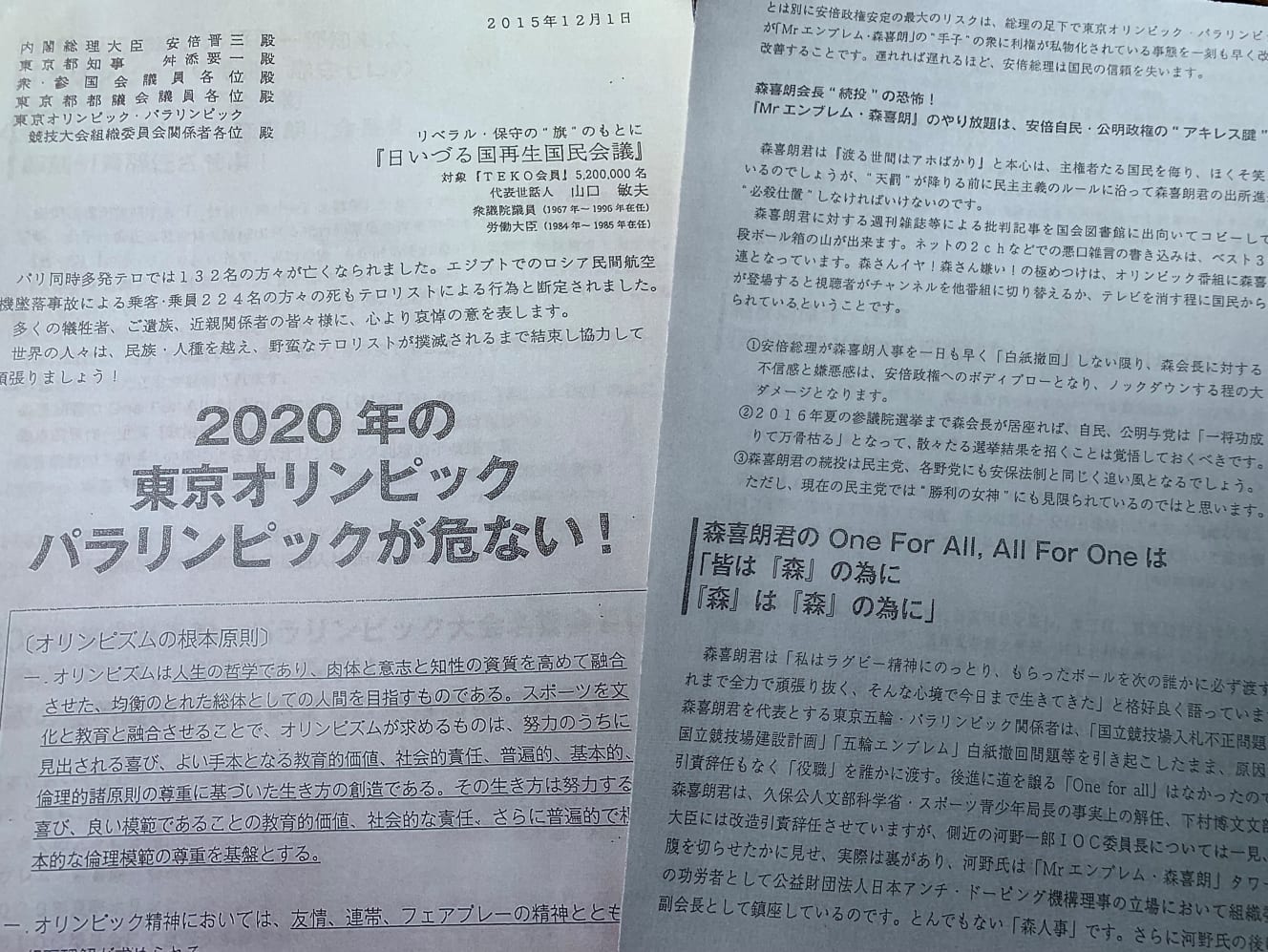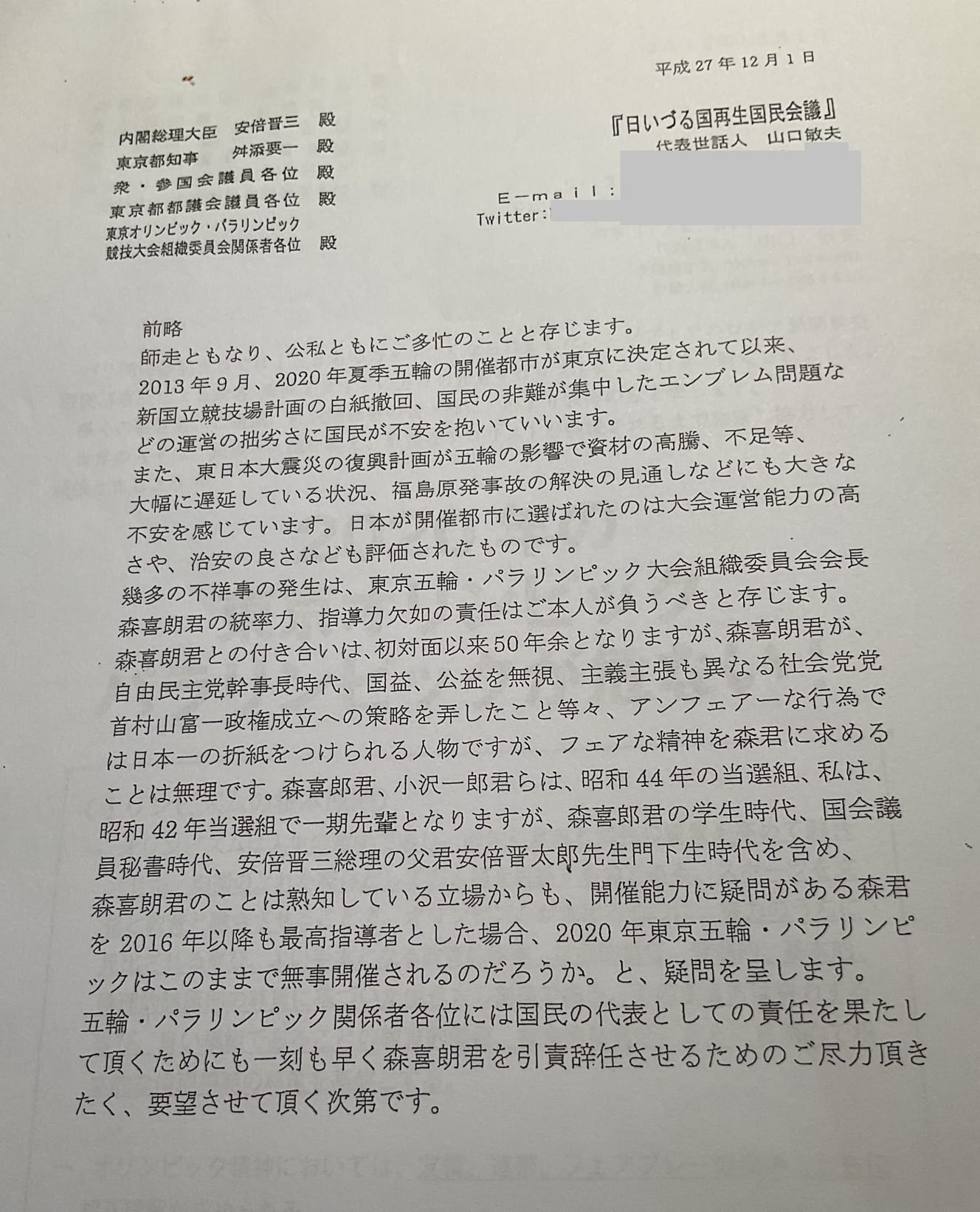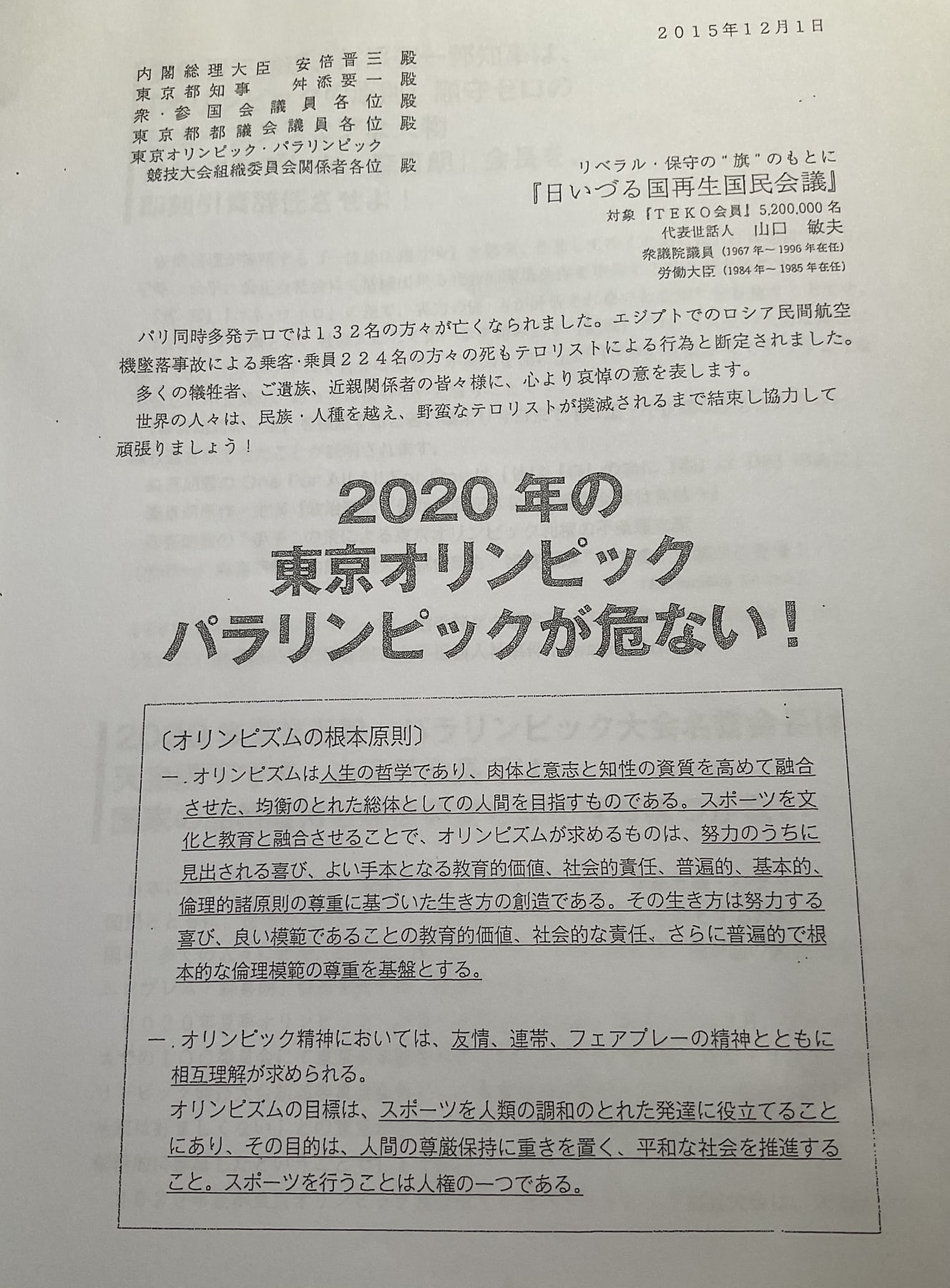Former Prime Minister Mori’s Foes Sell Olympic Bid as Concession for Redevelopment of Jingu Gaien Garden

The Real Aim of the Tokyo District Public Prosecutors Office
The arrest of Haruyuki Takahashi, 78, a former director of the Organizing Committee, on charges of bribery in a corruption case involving the Tokyo Olympics and Paralympics is about to shed light on the deep darkness. Although AOKI Holdings, publishing giant KADOKAWA, and Park24 were among the companies that were caught bribing the suspect, the real target of the Tokyo District Public Prosecutors Office is politicians and others in the political world.
Former Organizing Committee Chairman Yoshiro Mori, 85, was questioned as a witness on suspicion of having received 2 million yen from AOKI, but this is not enough to hunt down a former prime minister.
We interviewed former Minister of Labor Toshio Yamaguchi (82), who is known as the “Ushiwakamaru” of politics, has been a longtime rival of the LDP since he was a rookie member, and has his own network of information.
The main issue is the interest in the redevelopment of Jingu Gaien,” he said.
The pursuit of corruption in the selection of sponsors is a completely different route, he said, and one that is keeping him up at night.
Mori has been paying attention to this project for more than 10 years and has been holding group study sessions with Dentsu, major general contractors, and others. I suspect that he became the chairman of the Organizing Committee after bidding for the Olympics in order to realize plans to build a baseball stadium, the Chichibunomiya Rugby Stadium, and high-rise office buildings and hotels, in addition to the New National Stadium.”
Jingu Gaien is a very prestigious location in Tokyo. The redevelopment of the area would be a major project involving the national government, the Tokyo Metropolitan Government, and major corporations.
The investigative authorities are very interested in what kind of interests are involved and how the money flows, and they are gathering information. Everything starts here, not at the level of AOKI or KADOKAWA, etc. It may take time, but I believe that exposing the composition of these interests is the target.”
One of the main features of the redevelopment project is the construction of the new Chichibunomiya Rugby Stadium, which will include a rugby museum, and a fund-raising campaign has begun to place a bust of Mori. Fifteen members of the “Mori connections,” including Fujio Mitarai, chairman and president of Canon Inc. and Seiko Hashimoto, a member of the House of Councillors who served as president of the Organizing Committee for the Olympics, are among the initiators of the campaign.
A series of allegations have caused a public uproar, and the location of the bust has been “undecided,” and Mr. Yamaguchi believes that “given the current trend, the project will probably be cancelled.
A small breakdown becomes a breakthrough, and the impregnable castle crumbles. The special investigators are also said to be focusing on the sudden closure in December 2008 of the “Jigoro Kano Memorial International Sports Research and Exchange Center,” a foundation established in 2009 with Mori at the helm. The foundation received approximately 145 million yen from the Tokyo Olympics Bid Committee, and it is believed that there are other unaccounted-for funds in the hundreds of millions.
The Olympics are supposed to be a festival of peace and a spirit of fair play, but when the faces of politicians are hidden in plain sight, we are brought back to the ugly reality.
Mr. Mori was not originally appointed chairman of the Organizing Committee. I was first elected to the House of Representatives in 1967, and he was elected in 1969, making me one term his senior. He is a man who does nothing and takes no responsibility. In general, a politician should not be allowed to stick his neck out and reign over the sports world.

The true nature of Haruyuki Takahashi, former senior managing director of Dentsu
Mr. Yamaguchi also had a close relationship with the suspect, Takahashi, and was close to his brother Harunori (deceased), who created a ¥1 trillion corporate group and was known as the “king of the bubble economy.
He called Haruyuki “Hachi” and Harunori “Nori. Haruyuki did not like sports or anything, and was an entertainer who was only interested in making money for himself. He was a kind of half-legal gangster, so to speak. His younger brother, on the other hand, was shy and not good at banquets, so Haruyuki took his place and expanded his network. He would pay bills without breaking a sweat, or fly overseas on his brother’s private jet to entertain sports figures.
Takahashi successfully staged the retirement match of Pele, the king of soccer, at the National Stadium in Tokyo in 1972, and promoted the commercialization of the 1984 Los Angeles Olympics.
However, he was only an employee at the time of Pele’s retirement, and at the time of the L.A. Olympics, he was merely an errand boy for the late Yoichi Hattori, who is remembered as the Dentsu man who paved the way for the sports business.
While some credit Dentsu with playing a key role in the successful bid for the 2002 Soccer World Cup, those involved in the soccer business deny this.
I am not joking. He is a dangerous person, so we didn’t deal with him. When the bidding process came to fruition, he would blabber on about how he had succeeded thanks to my lobbying efforts, and we were furious.
He was the type of person who relied on his brother’s financial power and took credit for other people’s achievements, but the media created a false image of him as a “do-gooder,” “hard-working,” and “brilliant. By making himself look big and behaving arrogantly, those around him must have bowed down to him and used him more heavily than necessary.
Finally, Mr. Yamaguchi cut him down.
Haruyuki was a bottle-feeder who had to rely on his younger brother for support,” he said. After his arrest, the media finally realized that he was just a showman.


Interview and text: Toshiki Tsuda
After working as a reporter for professional baseball and the Olympics, he served as the head of the sports department and a member of the editorial board. After retiring, he continues to write and is currently a part-time lecturer at Kokushikan University, Faculty of Political Science and Economics (media theory and mass communication theory).